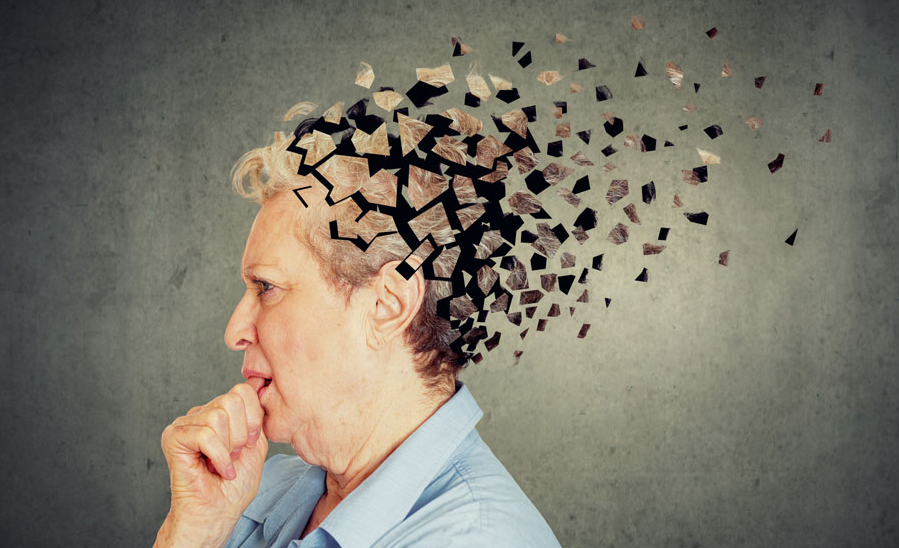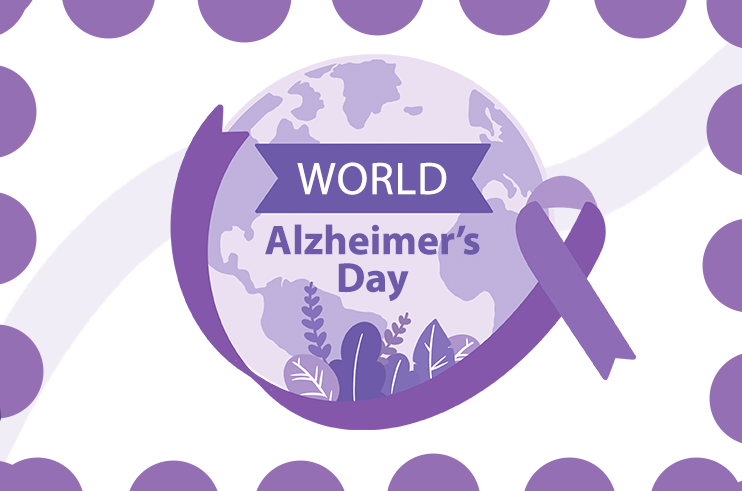One thing never changes in a continuously changing world: Alzheimer’s disease’s unrelenting toll on millions of lives. On September 21st of each year, people from all over the world come together to observe World Alzheimer’s Day, a day of reflection, awareness, and advocacy. But why do we observe World Alzheimer’s Day?
The article explores the fundamental motivations for celebrating this day, examining the value of spreading awareness and pursuing an Alzheimer ‘s-free future. Join us as we embark on a journey to understand the importance of this somber day and the hope it offers to those impacted by this enduring affliction.
Historical Overview: The Origin of World Alzheimer’s Day
Every year on September 21, there is a global effort to increase awareness of and understanding of Alzheimer’s disease, affecting millions worldwide. It was first seen in 1994, also Dr. Alois Alzheimer’s birthday. Dr. Alzheimer was a German psychiatrist and neurologist credited with discovering the first instance of the illness to be published in 1906.
The initiative to create World Alzheimer’s Day was spearheaded by Alzheimer’s Disease International (ADI). Princess Yasmin Aga Khan, the daughter of Rita Hayworth, has long been a vocal supporter of Alzheimer’s awareness. She became a prominent figure in Alzheimer’s activism and research due to her mother’s illness in the 1980s.
Princess Yasmin was crucial in establishing World Alzheimer’s Day and Alzheimer’s Disease International. The annual observance of World Alzheimer’s Day serves as a reminder of the ongoing fight against Alzheimer’s disease and the critical need for more education, assistance, and research to stop this life-altering disorder. Such an educative history of information!
Reasons why World Alzheimer’s Day is celebrated
World Alzheimer’s Day is an internationally acknowledged commemoration essential for spreading awareness of Alzheimer’s disease and associated dementias. This day is observed sincerely to raise awareness about, support, and advocate for individuals impacted by this recurrent ailment. Some of the main justifications for observing World Alzheimer’s Day are listed below. Take a glimpse!
1. Raising Awareness
One of the primary objectives of World Alzheimer’s Day is to shine a spotlight on Alzheimer’s disease. World Alzheimer’s Day brings attention to Alzheimer’s and related dementias, educating the public about its effects, symptoms, and prevalence.
2. Advocacy and Policy Change
The day is a platform for advocates to lobby for policy changes, research funding, and improved care services locally and globally.
3. Support for Affected Families
The day reminds families impacted by the disease that they are not alone, offering support, resources, and community connections.
4. Highlighting Caregiver Roles
Alzheimer’s caregivers play a crucial part in managing the disease. The day sheds light on their challenges, offering gratitude and acknowledging the essential role they play.
5. Promotion of Research
World Alzheimer’s Day highlights ongoing research, showcasing advancements, breakthroughs, and the persistent need for further study to find a cure. It stresses how critical it is to discover quick and efficient treatments, safeguards, and finally a cure for this degenerative neurological condition.
6. Fostering Global Unity
The disease affects people worldwide, irrespective of nationality, race, or socioeconomic status. The day brings together diverse communities in a unified fight against Alzheimer’s.
7. Early Diagnosis and Intervention
The day emphasizes the importance of recognizing early symptoms and the benefits of timely interventions, potentially delaying the disease’s progression. Nevertheless, it advocates the necessity of routine cognitive testing and stresses the value of early detection.
8. Fundraising and Support
Events around World Alzheimer’s Day often serve as fundraisers, channeling much-needed resources into research, patient care, and caregiver support. The advancement of activities related to Alzheimer’s depends on these funds.
9. Destigmatizing Alzheimer’s
Tragically, facts are facts, and stigmatization will always find a way to infiltrate our reality. Fortunately, this day always protects our lovely people from it and helps them combat it. By promoting open dialogue, lowering stigma, and encouraging empathy for Alzheimer’s patients and carers, World Alzheimer’s Day helps to build a more understanding and helpful society.
10. Emphasizing the Global Impact
The purpose of World Alzheimer’s Day is to raise awareness of the disease’s effects on people all over the world as well as to encourage international cooperation and the exchange of best practices in Alzheimer’s care and research.
11. Celebrate the progress
No matter how insignificant it may appear, applaud it. Nevertheless, encouragement is essential for success while acknowledging the difficulties still to come and appreciating the advancements made in Alzheimer’s research and treatment.
World Alzheimer’s Day provides an essential forum for promoting research, lowering stigma, increasing awareness, and helping those with the disease and their family. Understanding the motivations for its commemoration will help us all contribute to creating a more caring and knowledgeable society, which will get us one step closer to a world free of Alzheimer’s disease. Take a steady look at these reasons why World Alzheimer’s Day is celebrated for more content, you know!

How You Can Participate: Making a Difference at the Grassroots Level
World Alzheimer’s Day is more than simply a commemorative day; it gives people and communities the ability to improve the lives of those who are impacted by the illness. Whatever your relationship, there are many opportunities to become involved at the local level.
1. Volunteering opportunities
Volunteers are essential to Alzheimer’s advocacy groups like neighborhood associations, memory care institutions, and support groups because they donate their time and expertise to jobs like companionship, event planning, and office work.
2. Fundraising and donation options
By collecting money and promoting community cohesion, fundraising activities like bake sales, auctions, charity walks, and runs may greatly aid Alzheimer’s research and support services and occasional contributions
3. Participate in support groups
For family members and caregivers, joining a local Alzheimer’s support group can offer a safe space to exchange stories, counsel, and emotional support with others who recognize their difficulties.
4. Elevating awareness to schools and youth
Spreading information across the verse is quite a plus for effective awareness. Engage in community outreach with local schools and youth groups to provide programs for Alzheimer’s education. A future generation that is more understanding and compassionate may result from educating children about the condition and the value of empathy.
5. Support The Research
Finding efficient treatments and eventually a cure for Alzheimer’s requires advances in science and the great art of research.
6. Share experiences and stories
To foster empathy and spur action, share individualized accounts of Alzheimer’s disease on social media, blogs, or at local gatherings. By sharing the disease openly, one might lessen stigma and inspire others to follow suit.
7. Advocate for policy changes
Advocate for laws that will help people with Alzheimer’s and their families, such as better access to care, more resources for caregivers, and money for research. With this, a safe space will be found and felt.
8. Increasing local awareness
By educating your neighborhood on Alzheimer’s disease through talks, workshops, or seminars, you can lessen stigma and encourage early diagnosis.
9. Hand out temporary care
Give carers some time off. Giving caregivers brief breaks might help them feel less stressed and avoid burnout. Helping out for even a few hours may have a big impact.
10. Create a Memory Cafe
Create a Memory Café in your community so that people with Alzheimer’s and the caregivers who care for them may interact and connect in a secure environment.
11. Design or make public art projects
Get creative by discovering a solution to this problem. Collaborate with regional artists to produce public art displays that promote awareness of Alzheimer’s illness.
12. Participate in charity walks and runs
The Matter Heart Run is a respectable and excellent example. Just as the rest of the world has embraced it, so should we with Alzheimer’s Day. Take part in charity walks or runs to support local or online Alzheimer’s research.
Participating at the grassroots level provides a special chance to impact the Alzheimer’s disease battle truly. Your efforts, whether via advocacy, fundraising, education, or volunteering, add to a widespread movement of kindness and support. By working together, your community can build a world where people with Alzheimer’s and those who care for them may find support, information, and hope. We can have a significant influence on this vital issue by working together.
Do you want to participate and learn more adversely on Grassroots organizations? I know you want to, check out what we have in store, making a difference at the Grassroots level!
Conclusion: The Global Commitment to Ending Alzheimer’s
Worldwide, people, families, and communities are impacted by the fight against Alzheimer’s. The knowledge, diagnosis, and treatment of the condition are improving because of our combined efforts. This constant conflict is aided by every dollar given, every hour volunteered, and every fundraising activity.
Your contribution is essential for furthering research, providing caregiver services, and lowering stigma related to Alzheimer’s. Let’s renew our dedication to the cause as we observe World Alzheimer’s Day and participate in fundraising and donation campaigns. With this stand, The Global Commitment To Ending Alzheimer!
You there, be their light source and hope for a better tomorrow. Together, we can ensure those with Alzheimer’s receive the care they require, carers are supported, and scientists keep searching for a solution.



